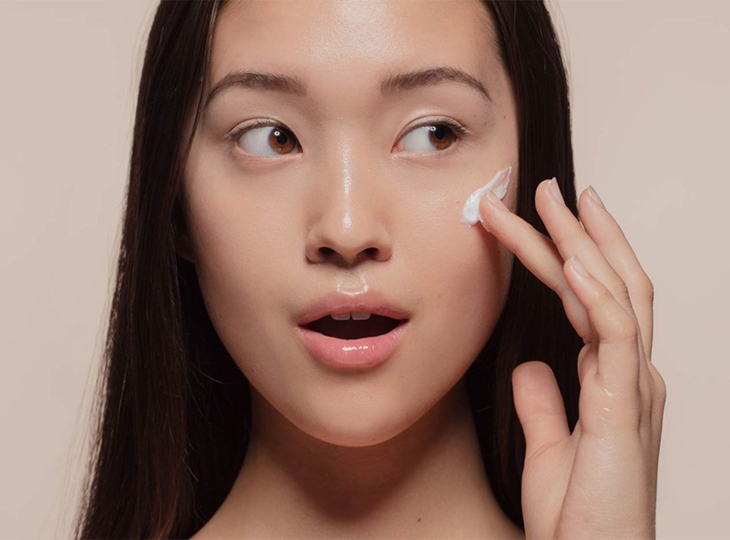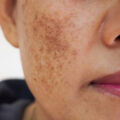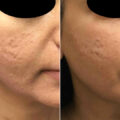Tues: 8:30am - 3:00pm
Wed: 12:00pm - 6:00pm
Thurs: 8:30am - 3:00pm
Fri: Closed
Sat: 8:30am - 12:30pm
Sun: Closed
Greenvale, NY 11548
What’s all this Talk about Jell-O Skin?


Tune into TikTok with any frequency and you’ve probably seen viral video clips about “Jell-O skin.” We’re not talking about a toddler who’s made a mess with his chocolate pudding.
Jell-O skin, at least among TikTokkers, is a desirable condition that refers to smooth, supple skin, sometimes described as “glowing” and “bouncy.”
In each of those videos, all they’re really talking about is skin that contains a significant amount of collagen, a protein that helps skin stay smooth and wrinkle-free.
So what is “Jell-O skin?” It’s not an actual medical term, just an expression made up on the Internet. Like the name and texture of the beloved dessert, “Jell-O skin” describes healthy-looking and plump yet firm skin.
Diet & Lifestyle Show the Way to Healthy Skin
There’s no single beauty regimen, procedure or magic trick to achieving Jell-O skin. Diet and lifestyle choices are key to smooth healthy skin, supplemented by a consultation with your dermatologist.
As with so many things in life, what you get out of your body largely depends on what you put into your body. Diet choices are important.
Protein-rich foods can help collagen production, which slows down naturally as we age. Protein delivers amino acids used in the body to make collagen. Although you can buy oral collagen supplements, there’s no hard medical evidence to suggest that these pills are more effective than eating the right foods. Work on your diet before spending money on collagen supplements.
Eggs and poultry are rich in collagen-producing proteins. The same goes for most meats, though a healthier choice is to avoid heavily processed meats like salami, bologna, sausage and hot dogs.
Salmon and most types of shellfish are also an excellent and abundant source of protein for producing collagen. Soybeans and lentils are a healthy low-calorie choice.
You’ll also want to maintain a diet rich in vitamin C, which is essential for collagen production. A sampling of good choices:
- Brussels sprouts
- Kiwis
- Oranges
- Pineapples
- Sweet potatoes
Supplements containing vitamins A, C and E can also help activate collagen production. Over-the-counter retinol is a vitamin A derivative that can be taken as a substitute for vitamin A supplements, since many people already take retinol to smooth their wrinkles.
Limiting your sun exposure and avoiding tanning salons will also help protect the skin’s appearance so you’ll look younger. The short-term aesthetic benefits of a tan probably do not outweigh the long-term damage caused to the skin. Unprotected exposure to harmful UV rays will break down the collagen and elastin fibers in healthy skin, causing wrinkles and loosened folds, the FDA warns.
When Diet Isn’t Enough
It’s worth mentioning again that our bodies produce less collagen as we age, so even though ramping up the protein intake may slow down the formation of wrinkles, in older people a protein-rich diet alone may not be enough to reverse those visible signs of aging skin.
In that case, dermal fillers might be the answer. At Walk-in Dermatology, we offer convenient dermal filler procedures including JUVÉDERM and Restylane.
These FDA-approved injectable cosmetic fillers can help reduce facial wrinkles to restore a smoother appearance. Both JUVÉDERM and Restylane offer different product variations developed for specific treatment areas, such as cheekbones, the marionette lines (creases extending from the corners of the mouth downward around the chin), the lips, fine lines around the mouth and more.
Injectable fillers cause minimal discomfort in most patients while delivering immediate results you can see. Plus, there’s no downtime. You can go back to your normal routine the same day as your treatment.
Talk to your dermatologist about a treatment option that’s right for you. You can enjoy younger looking skin today.
Fast Facts About Jell-O
After all this talk about “Jell-O skin,” let’s take a moment to look inside a box of Jell-O itself. The product contains gelatin, which is derived from animal bones and skin – so be aware that it doesn’t qualify as vegan or even vegetarian. But gelatin is a degraded form of collagen, so it can be beneficial for the skin as well as joints, hair and bone health, according to WebMD.
On the downside, flavored gelatins often contain artificial sweeteners (or high amounts of sugar) and coloring agents – so Jell-O itself is not a health food, even though the brand name has been co-opted on social media to describe healthy, youthful skin.
Let Walk-in Dermatology Take Care of You
If you have concerns about any skin condition and need dependable answers – fast – you don’t have to wonder, worry or wait. Walk-in Dermatology is here to keep you healthy. Our team of dermatologists and experienced healthcare staff will address your concerns and provide the necessary care for all your skin conditions. We can set up a Video Visit and even prescribe medications remotely, or you can schedule an appointment with us online. The choice is yours. But don’t wait until the problem gets worse. Contact us today.








